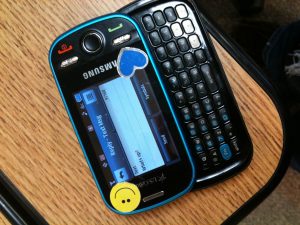
On Feb. 6, an a series of events that started back in late Dec., continued until now and struck cable television news. Adlai E. Stevenson High School in suburban Lincolnshire started confiscating cell phones in order to aid their investigations and provide “credible evidence” about the increased drug activity at Stevenson High School.
Many students are wondering whether or not something like this could happen at Huntley High School.
In order for an officer to confiscate a cell phone, there must be reasonable suspicion that a student is dealing drugs. Before the cell phone can be taken, the student must first be arrested.
“If a school administrator took a cell phone under reasonable suspicion that a student is drug dealing during school hours, it is allowed only if it is under the school’s policy act,” says Huntley Officer Laura Kruis. “The only way a school administrator can take a cell phone is if the student is using the cell phone during class or school to send text messages about drug dealing.”
Arrests at Huntley High School have occurred over drug dealings, and students’ phones have been confiscated. It is under the discretion of the arresting officer whether or not the students’ cell phones can be a part of the evidence that the officer is required to confiscate.
“Having a cell phone in school is a privilege, not a right,” said Officer Kruis.
A cell phone can be used as evidence against a student in the court of law. If a student decides to organize his or her drug dealing through his or her cell phone during school hours, the student takes the risk of having his or her cell phone confiscated by an officer or school administrator.
Some students tend to talk about drug dealings throughout the school day. If an administrator or officer does not have reasonable suspicion that a student is dealing drugs, action will not be taken against them.


